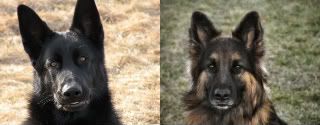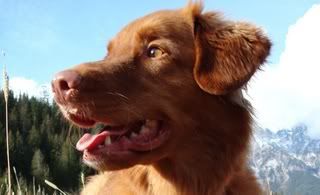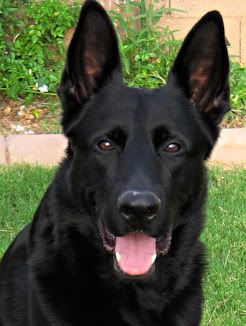In all honesty it amazes me how little you guys are open to discussion.
Ben, if we weren't open to discussion, you wouldn't have two pages (and counting) of debate on this subject. We just don't agree with you.
Yuko, if I'm so foolish please PM me one peer reviewed study on social status, pack behavior, and dominance in wild wolves or even better how about one on dogs.
Since you're so study-happy, why don't you post one that supports your point of view: That dogs don't have pack drive (i.e. they don't desire a leader). That IS your point of view, right? Or are you still just specifically talking about the out as being a pack issue, because your statements seem to be all-encompassing.
Sure dogs desire company, thats why they were domesticated and was a trait chosen for. But why does that mean they instinctually desire a leader and will step up if one is not in place? There have been a few studies on wild dogs (not enough) and while many wild dogs tend to group in loose "packs" many also live solitarily or with just a pair. What explains this?
First of all, pack drive, like other drives is stronger in some breeds than in others, and stronger still in some individuals within a breed. Herding dogs, for example, were bred to have really strong pack drive because they had to work closely with their humans (their leader). This is why most well-bred herding dogs will follow you around without a leash and without a reward...as pups or adults. The drive to follow the leader and stay with the pack is a very strong instinct that does NOT have to be taught.
Sure it's motivationally reinforced. But it's there from birth as well. If drives were not influenced by genetics then the various breeds of domesticated dogs that we have now would not be so sharply delineated. If motivation was the only issue then selective breeding wouldn't work and one dog would be much like another.
And it's not just carnivores...herding animals have it too, although it's called "herding instinct" with them. Still, it's the same principle. Staying with the herd (or the pack) and following the leader has been genetically reinforced for ages. It's a way for all to have a better chance to survive (either in escaping or making a kill) than it would be for any solo animal, prey or predator.
And as for an animal that needs a pack (or herd): How could they possible have an organized hunt (or escape) if most of the animals did not FOLLOW?
If they (prey animals) all followed their own mind, they would all scatter and expose themselves.
If they (pack predators) all followed their own mind, they would be disorganized and every man for himself would not make for a successful hunt.
If every wolf within a pack decided to attack another wolf whenever he felt like it, it would be chaos and the pack system would not work. In order for a group to be effective, there has to be a leader. This is true for herds, packs or football players. It just doesn't work if everyone has their own strategy.
But speaking of dogs and not wolves (or football players), are you honestly telling me that you have never seen stray dogs pack up? Do you honestly think that's because they just want company? Are you saying that instead of "pack drive" they have "company drive?"
And how could they possible pack up if they were all following their own desires and not the desires of the leader? They would scatter...one wants to sniff here, another wants to raid this garbage can, another wants to fight that other dog, another wants to chase a cat.
And why don't stray cats pack up? They like company, too. But have you ever seen a pack of stay cats?
I'm sure there are studies done on pack drive in domesticated dogs, I'm sorry I don't happen to have one readily available, but I honestly didn't think I'd ever have to PROVE that to someone! Are you so hung up on studies that you can't see the things that your average 8 year old can see?

Carbon
 Previous Topic
Previous Topic Index
Index Next Topic
Next Topic














 Top
Top









